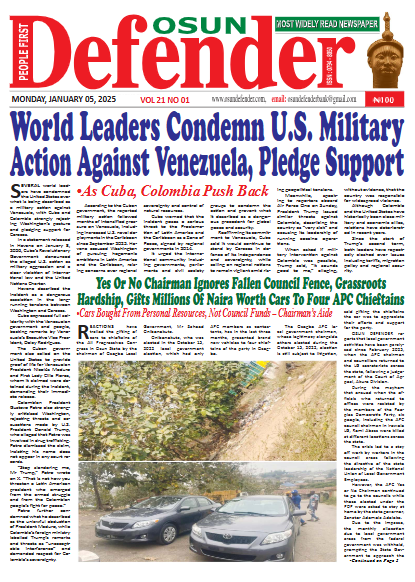• Once Again Nigeria Lags Behind
SURVEY released a few days ago by the United Nations in partnership with the Oxford Poverty and Human Capital Development Index is bittersweet. On a positive impact, countries such as India, China and Indonesia have halved their own poverty rates over the past fifteen years, in addition more than twenty-five countries have made admirable progress in poverty reduction.
The downside is not to be glossed over though, 1.1 billion people worldwide are still in multidimensional poverty. A horrible figure! Here in Nigeria, the accepted statistics is that 133 million people are trapped in multidimensional poverty.

With a devaluation of the Naira by 42% and the elimination of the corruption propelled fuel subsidy, millions more have definitely been pushed into the poverty trap. Even those above are just a serious illness away from penury. The situation is dire!
The cost of living crises in Nigeria is bound to get worse with all manner of anticipated increases in tariffs and fees, including fees for Unity Schools and Universities rumoured to be in the offing.
In this predicament, an anti-poverty program, a real war against poverty must now be at the heart indeed the propellant of economic policy. This is the reality and it is commonsense. To state the obvious, the much needed revival of the nation’s manufacturing base will be meaningless within the context of the continuing erosion of purchasing power parity.
A lesson to be learned from the recent debacle is that living standards can only be protected by macroeconomic stability. President Bola Tinubu must begin the diligent search for a Central Bank governor who places the core mandate of price stability above all else and who resist political interference. It’s a tough call.
The current statistics confirm the fall out if a rent-seeking economy based on consumption for a tiny elite as opposed to an emphasis on production trajecting into shared prosperity.
The new federal government has started well picking the low hanging fruits, it must now declare a total war on poverty. The higher hanging fruits include a serious attack on the costs of government, a transition from “minimum” to living wages, the use of commodity exchanges to modernise agriculture, thereby transiting the peasant farmers into commercial farming.
The River Basin Development Authorities have to be turned into value-addition export zones. The list is long.
It is in this way that we can have hope renewed and build a society based on social justice as well as shared prosperity.










